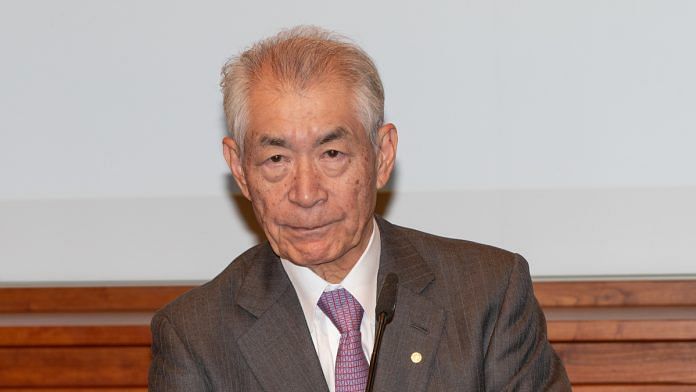Bengaluru: A patent war between two eminent cancer researchers, including a Nobel winner, has captured international attention.
According to NPR news station WBUR, Tasuku Honjo from Kyoto University, who received the 2018 Nobel prize in medicine for his work on ‘immunotherapy’, is embroiled in a legal battle with another researcher and Harvard Medical School professor, Gordon Freeman.
Both Honjo and Freeman worked on the basic ideas and research 20 years ago that eventually gave rise to immunotherapy. The basis of the case is the six patents that name Honjo and other Japanese scientists as collaborators and inventors, but not Freeman or the other unnamed American colleague who were involved in the process.
Fighting cancer with immunotherapy
Immunotherapy is a form of developing cancer treatment which uses mechanisms to boost the body’s natural immunity to fight cancer. The mechanisms include checkpoint inhibitors (drugs that help immune system respond strongly to a tumour by ‘brakes’ that normally prevent killing cancer cells), adoptive cell transfer (where tumour cells that fight the tumour itself are taken out, strengthened, and put back), therapeutic antibodies (proteins synthesised in a lab that can attach to cancer cells), treatment vaccines, and BCG (diluted tuberculosis bacteria that are inserted into the bladder, triggering an immune response).
There are several methods of administering immunotherapy, including surprisingly easy ones like oral pills or topical creams. But they come with their side effects such as include nausea, chills, headache, soreness, weakness, and other symptoms that resemble the flu.
“We’ve just turned the corner in terms of understanding the best modalities for fighting cancer,” explained Christiana Bardon of the Oncology Impact Fund in Boston, in an interview.
“Now we can improve on the first generation of immunotherapy drugs, which have shown dramatic proof of concept. I think the field is really going to explode in terms of the number of therapies, the science and the combination opportunities,” she said.
In fact, the HPV vaccine that seems to always be in the news in India and helps prevent cervical cancer in women, works on the principle of immunotherapy while protecting against the human papilloma virus.
Also read: Breast cancer is still the biggest killer in India, shows study
‘Patents worth billions of dollars’
In 1999-2000, Honjo and Freeman started collaborating at Dana-Farber Cancer Institute, and worked on a molecule now called PDL-1. This molecule works really well in conjunction with PD-1, another molecule that Honjo had discovered earlier. The two molecules work as a brake in cancer cells, preventing drugs from affecting it. Immunotherapy lifts this brake and enables attack.
It’s all the material in the form of lab notes and biological samples from these two years that form the core of the case currently being litigated in a court in Boston, where Dana Farber is based. The lawsuit is extremely complex and scientific. The judge in the case has mentioned that she’s buried under notebooks, powerpoint presentations, emails, and journal papers.
Jake Sherkow of New York Law School, an expert on patent disputes in the life sciences, told WBUR, “The patents that are currently issued to Professor Honjo are probably worth billions of dollars.”
“It goes directly towards issue of scientific credit, honesty and reliability,” Sherkow added. “So those things combined, if you add money to the mix, it makes a particularly potent poison,” he said.
On Honjo’s side in this lawsuit is the pharmaceutical company Bristol-Myers Squibb, which holds the licences that control the use of immunotherapy patents and is one of America’s largest corporations by revenue. It manufactures drugs for dozens of treatments and illnesses.
Closing arguments are scheduled for Friday, 22 February, 2019, but it is likely that several months will pass before a judgment is issued.
Also read: Investigation alleges J&J knew its powders have cancer-causing asbestos but hid the info



